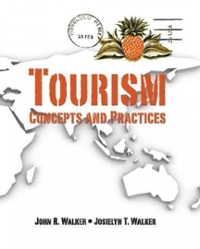Question
Part One ::: Prepare To Brainstorm Solutions ============================================== 1. Challenge Statement 2. Description of Challenge: Provide a brief description of your challenge. What is the
Part One ::: Prepare To Brainstorm Solutions ============================================== 1. Challenge Statement 2. Description of Challenge: Provide a brief description of your challenge. What is the reality that creates a need for this challenge? Step 1: Describe Expanded Personas ============================== 1. Select three personas from your original effort. Include their name, description, and system goal. You can copy and paste this from your template. a. Name b. Description c. System Goal 2. Show how you expanded the personas from your original. From the expanded personas template, provide their age, quote, and key attributes. You can copy and paste this from your template. Example 1 : a. Age b. Quote c. Key Attributes Example 2 : a. Age b. Quote c. Key Attributes
Example 3 : a. Age b. Quote c. Key Attributes
Example 4 : a. Age b. Quote c. Key Attributes
Step 3: Establish Capabilities ================================ 3. For each one of your personas described above, provide the "How might we...?" question you've associated with them. 4. Choose one "How Might We...?" question and provide the capability that summarizes the question. 5. For the capability you've chosen, define three to five sub-capabilities you were able to derive from your empathy data and results of your previous activities. Step 3: Explore Context ======================== 6. Using the same examples of personas and capabilities, summarize the context of your user-centered system. Use the labels you created for your personas context diagram. 7. Describe the connections among the personas. How do they relate? 8. Describe the connections between each persona and the system. 9. Summarize the context revealed by integrating capabilities with context. 10. What insights did exploring context this way bring to your design process? 11. Predict the impact these insights will have on your design process. How will you apply them as you prepare to brainstorm user-centered solutions? 12. How did your understanding of the personas change as you fleshed them out? Part Two ::: Brainstorming Candidates for Prototyping -- Step 1: Brainstorming =================================================================================== 1. Describe how you used the brainstorming guide to set up your brainstorming space. Elaborate on whether the space was physical, virtual, or both. Include a description of the tools you used to occupy the space and how they were used. 2. Provide a brief overview of the diverging phase of your brainstorming. Include an example. 3. Provide a brief overview of the converging phase of your brainstorming. Include an example. 4. Of the candidate solutions you've identified, which excites you the most? Why? Step 2: Asses Your Analysis : ================================ 6. Describe the results of plotting your brainstorming votes on the trade-off diagram. 7. Did one potential solution become obvious or were there many to consider and refine? Explain. 8. Which candidate for prototyping was selected? Name the candidate and explain how it relates to your challenge statement. 9. Did the concept that your team ultimately chose have low feasibility/viability, low desirability, or both? If so, discuss what made you choose that idea anyway. Step 2: Reflect on Brainstorming : ==================================== 10. How did brainstorming with the guide and the trade-off diagram contribute to the brainstorming process? How did it influence the resulting observations? 11. Did you feel the process provided sufficient opportunity to surface and select a candidate for prototyping? 12. What aspect of brainstorming did you find most challenging? 13. Was your favorite candidate solution selected for prototyping? If not, how has the design tradeoff diagram affected how you think/feel about the chosen solution? 14. Did the concept that your team ultimately chose have low feasibility/viability, low desirability, or both? If so, discuss what made you choose that idea anyway.
Step by Step Solution
There are 3 Steps involved in it
Step: 1

Get Instant Access to Expert-Tailored Solutions
See step-by-step solutions with expert insights and AI powered tools for academic success
Step: 2

Step: 3

Ace Your Homework with AI
Get the answers you need in no time with our AI-driven, step-by-step assistance
Get Started


